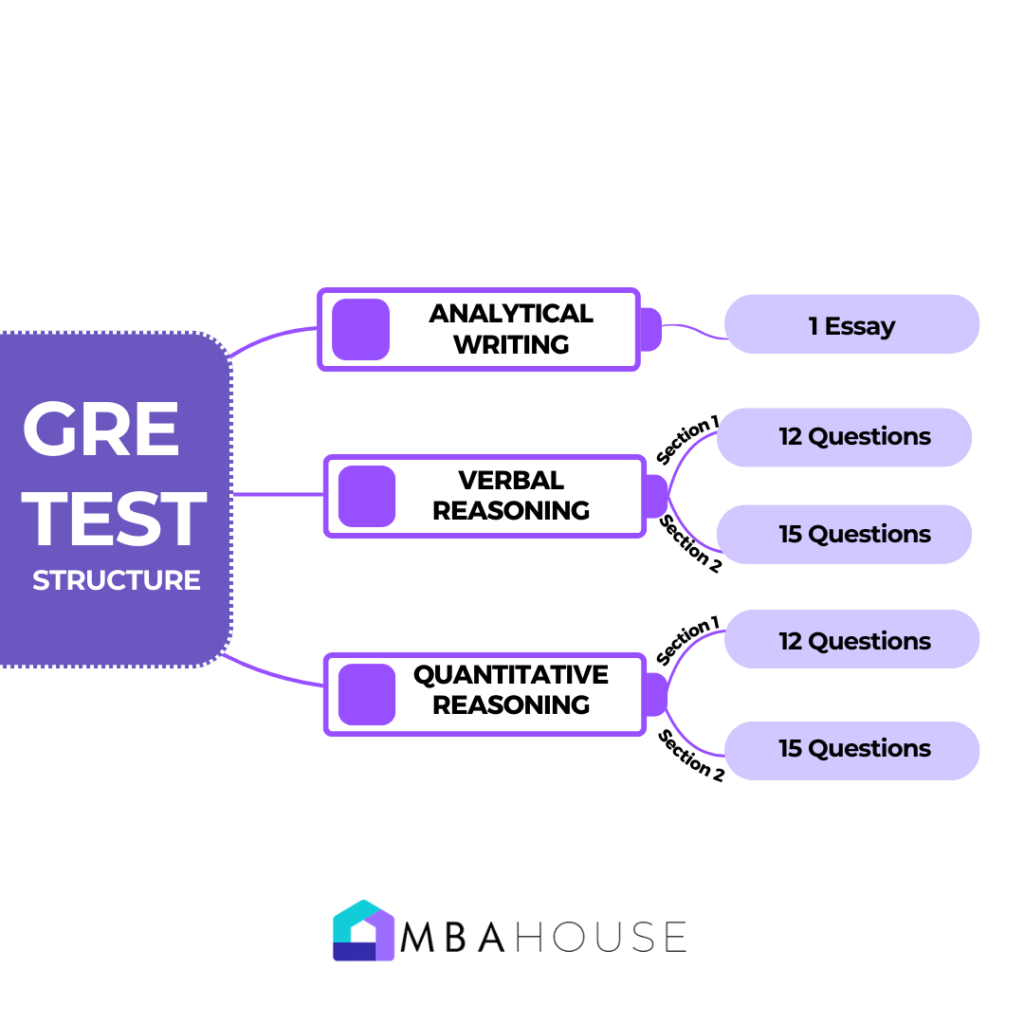Have you got the GRE looming right around the corner? It’s the final stretch, and you probably feel a mix of nerves and determination.
All those long nights hunched over practice questions, skipping binge-watching your favorite shows, and sacrificing your usual hobbies—it’s all coming to a head. As you prepare to tackle the GRE challenge, you’re likely searching for some last-minute GRE study tips to give you that final boost.
Let’s face it: the pressure is on. You’ve put in the hard work, and now you need to squeeze out those last few points. It’s natural to wonder, “How long should I study for the GRE?” and feel unsure about whether you’ve covered everything you need. Don’t worry—you’re not alone in this. There’s always a way to refine your approach and make the most of your remaining time.
You might be hearing advice like, “Stay calm and stick to what you know” or “No shortcut can replace hard work,” and while there’s truth in that, sometimes you need practical tips to polish your strategy right before the big day.
Before we dive into these essential last-minute tips, it’s important to understand how long the GRE test is, as knowing the duration and the GRE test structure can help you optimize your final prep.
GRE Test Structure

| Sections | Number of Questions |
| Analytical Writing | 1 Section(1 Essays) |
| Verbal Reasoning(Two sections) | Section 1: 12 QuestionsSection 2: 15 Questions |
| Quantitative Reasoning(Two sections) | Section 1: 12 QuestionsSection 2: 15 Questions |
The GRE is divided into three distinct sections. It begins with the Analytical Writing Assessment (AWA), followed by the Verbal Reasoning section, and concludes with the Quantitative Reasoning section.
Further in this blog, we’ll explore some valuable tips to help you ace your final GRE preparation and set yourself up for success.
21 Last-Minute GRE Tips to Help You Ace the Test
Yes, last-minute studying can get the adrenaline pumping, but with the right strategy and focus, it can be an efficient way to fine-tune your skills.
To help you make the most of these final days, here are 21 last-minute GRE tips that can give you the edge you need to achieve your target score.
1. Establish a Baseline with a Practice Test
Start by taking a full-length practice test under real test conditions. This will give you a clear idea of your current score and help you understand which areas require the most attention. Use this baseline to prioritize your study plan and focus on the sections where you need the most improvement.
2. Set a Realistic Target Score
Once you’ve taken a practice test, set a target score that aligns with the requirements of your desired graduate programs. Your GRE test prep should focus on bridging the gap between your current score and this target. Use this target score to guide your study sessions, ensuring that you’re working towards a specific, achievable goal.
3. Create a Structured Study Schedule
Time management is crucial in the preparation for the GRE exam, especially when it is last minute. Develop a daily study schedule that allocates time to each section of the GRE, including Verbal Reasoning, Quantitative Reasoning, and Analytical Writing. Break down your study sessions into manageable chunks and stick to the schedule. This structure will help you cover all necessary topics without feeling overwhelmed.
4. Focus on Weak Areas First
Identify the sections where you scored the lowest on your baseline test and prioritize these areas in your last-minute GRE study. Whether it’s complex algebra, reading comprehension, or vocabulary, spending extra time on your weaknesses will give you the most significant score improvements. Utilize targeted practice questions and review materials to strengthen these areas.
5. Review Key Math Formulas
As part of your last-minute GRE study, review and memorize key math formulas, such as those related to geometry, algebra, and probability. Practice applying these formulas through timed quizzes to ensure you can recall and use them quickly during the exam.
6. Expand Your Vocabulary with Flashcards
A strong vocabulary is essential for the Verbal Reasoning section. Use flashcards to review and memorize challenging GRE words. This method is one of the most effective ways to improve your verbal score quickly. Carry your flashcards with you and review them whenever you have a few spare minutes.
7. Practice Under Realistic Conditions
Mimic the testing environment by practicing under timed conditions and with the same tools allowed in the exam, such as the on-screen calculator. Practicing under realistic conditions is a critical part of GRE test prep as it helps you manage time effectively and reduces anxiety on the test day.
8. Take Multiple Full-Length Practice Tests
Regularly taking full-length practice tests is one of the best last-minute GRE hacks (No kidding!) It helps you build endurance and get accustomed to the length and pace of the exam. After each practice test, review your answers to understand your mistakes and adjust your study plan accordingly.
9. Analyze Your Mistakes Thoroughly
Review every practice test you take by thoroughly analyzing your mistakes. Understanding why you got a question wrong is as important as knowing the correct answer. This analysis will guide your preparation and ensure you don’t repeat the same mistakes on the actual exam.
10. Develop a Strategy for Each Section
Each section of the GRE requires a different approach. For the Verbal Reasoning section, focus on understanding the context of the passages. For Quantitative Reasoning, prioritize accuracy and time management. Developing specific strategies for each section is a crucial part of last-minute GRE study.
11. Prioritize Time Management and Pacing
Time management is key to success in the GRE. Practice pacing yourself in each section by using a timer during study sessions. Learn to quickly move on from difficult questions to avoid wasting time, ensuring you have enough time to answer all questions.
12. Use the Process of Elimination
When you’re unsure of an answer, use the process of elimination to narrow down your choices. This technique is particularly useful in the Verbal Reasoning and Quantitative Reasoning sections.
13. Practice Writing Essays
The Analytical Writing section is often overlooked in last-minute GRE study, but it’s crucial for your overall score. Practice writing essays on various topics within the time limit. Focus on organizing your thoughts clearly and logically, and ensure you address the prompt directly.
14. Review and Edit Your Essays
After practicing essays, take the time to review and edit your work. Look for any grammar or spelling mistakes and ensure your arguments are clear and well-supported. This review process is an essential part of GRE exam prep as it helps you refine your writing skills and improve your essay scores.
15. Focus on High-Frequency GRE Words
Certain words frequently appear on the GRE, so focusing on these high-frequency words during your last-minute GRE study can pay off. Use vocabulary lists that highlight these words and make them a priority in your study plan. This focused approach will help you maximize your score in the Verbal Reasoning section.
16. Practice Mental Math
While a calculator is allowed on the GRE, practicing mental math can save you valuable time during the Quantitative Reasoning section. So, practice solving problems without a calculator to improve your speed and accuracy.
17. Simulate Test Day with a Dry Run
A few days before the exam, do a full “dry run” of the GRE. Wake up at the same time, follow the same routine, and take a full practice test at the same time your actual GRE is scheduled. This simulation helps you acclimate to the test day conditions and reduces anxiety.
18. Utilize Online Resources and Forums
Leverage online resources, forums, and study groups for additional GRE exam prep tips and strategies. Engage with other test-takers to share insights and ask questions. These communities can provide valuable support and last-minute advice that you might not find in traditional study materials.
19. Stay Calm and Focused on Test Day
On the day of the exam, staying calm and focused is key to success. Avoid last-minute cramming, which can increase anxiety. Instead, review your keynotes and strategies and trust in your preparation. A clear mind will help you perform at your best during the exam.
20. Practice Guessing Strategies
If you’re unsure of an answer, it’s better to guess than to leave it blank. Develop guessing strategies, such as eliminating obviously wrong answers or making educated guesses based on patterns. Remember, there’s no penalty for wrong answers, so never leave a question unanswered.
21. Review Test-Taking Strategies the Night Before
The night before the exam, review your test-taking strategies one last time. Focus on time management, pacing, and the process of elimination. A quick review of these strategies can boost your confidence and ensure that you’re mentally prepared for the test.
Final Thoughts
These 21 GRE study plan tips are designed to help you maximize your score, even if you’re short on time. By focusing on a structured study schedule, targeted practice, and effective test-taking strategies, you can achieve your target GRE score and take the next step toward your academic and professional goals.
Remember, the key to success is not just hard work but also smart work. With the right plan and mindset, you can conquer the GRE and move forward with confidence.
These are a few additional tips from MBA House to ensure you’re fully prepared:
- Don’t Stress Out: Remember, the GRE is just an exam, not a life-and-death deciding factor. Try not to learn any new concepts in the final hours before the test.
- Take Care of Your Mental Health: Your mental state on test day is just as important as your academic preparation. Fuel your brain with healthy, balanced meals.
- Stay Humble and Focused: Confidence is key, but overconfidence can be detrimental. Stay grounded and remember that every question counts.
- Stay Physically Active: Keep moving to reduce stress and keep your mind sharp.
- Stay Positive: A positive mindset can make all the difference. Believe in your preparation and stay focused on your goals.
- Limit Screen Time: Reduce your screen time, especially before bed, to ensure a good night’s sleep.
- Practice Relaxation Techniques: If you feel nervous, practice deep breathing or other relaxation techniques. Take a few minutes to visualize yourself succeeding on the test—picture yourself confidently answering questions and managing your time effectively.
- Prepare Your Materials the Night Before: Make sure you have everything you need for test day—your ID, test registration, snacks, water, and any other materials allowed by the test center. Preparing these items in advance will help you avoid last-minute panic.
- Get a Full Night’s Sleep: A well-rested mind is sharper, more focused, and better equipped to tackle the challenges of the GRE.
If you’re searching for trusted GRE study courses, look no further than MBA House. Our team of Ivy League-trained tutors and consultants is dedicated to guiding you through every aspect of your MBA journey. We’re committed to equipping you with the skills and confidence needed to secure admission to your dream MBA program efficiently and effectively.
Good luck, and remember to stay calm, focused, and positive. You’ve got this!




